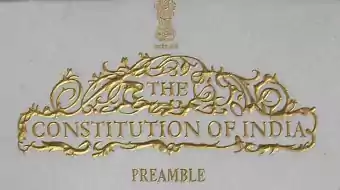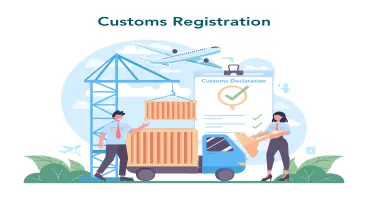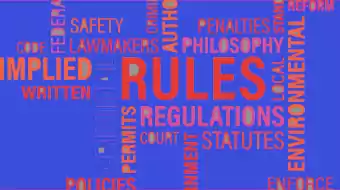THE LEGAL SERVICES AUTHORITIES ACT, 1987
Features of THE LEGAL SERVICES AUTHORITIES ACT, 1987
In order to fulfil the Preambular promise of securing justice to all the citizens irrespect of social, economic and political status. The Article 39 A of the Constitution of India provides for free legal aid to the poor and weaker sections of the society, to promote justice on the basis of equal opportunity. The Articles 14 and 22(1) of the Constitution also make it obligatory for the State to ensure equality before law. In 1987, the Legal Services Authorities Act was enacted by the Parliament, which came into force on 9th November, 1995 to establish a nationwide uniform network for providing free and competent legal services to the weaker sections of the society.
The Act is derived from the concept of Lok Adalats (People's Courts) aim to provide an alternative forum for the speedy resolution of disputes without going through the lengthy and expensive process of traditional court proceedings.
Lok Adalats are statutory bodies established under the Legal Services Authorities Act, 1987, amended in 2002 to include Permanent Lok Adalats.
The National Legal Services Authority (NALSA) is a statutory body established on 9 November 1995 under the Legal Services Authorities Act 1987. The Chief Justice of India is the head of NALSA, and the second senior-most judge of the Supreme Court is its Executive Chairman. Similar setups exist at the state and district levels, led by the Chief Justices of High Courts and the Chief Judges of District Courts. NALSA's main goal is to settle cases quickly and reduce the load on the courts.
It simplifies the procedure of judicial proceedings and provides speedy disposal of cases in a very short time. And it is a quick and cost-effective means of resolving disputes through mutual consent by encouraging conciliation. Lok Adalats are wonderful alternative dispute resolution mechanisms to resolve disputes amicably and quickly and minimize the load of adjudication on the overburdened judiciary. It strengthens the system of Lok Adalats and other Alternative Dispute Resolution mechanisms which provides informal, quick, inexpensive and effective resolution of disputes .
People who meet the conditions listed in Section 12 of the Legal Services Authorities Act, 1987 can get free legal help from NALSA. It also holds Lok Adalats to settle cases quickly.
Free legal aid is available to the following groups of people:
- The communities of Scheduled Caste and Schedule Tribes. These communities need special support because they have faced social and economic disadvantages.
- Anyone who is a victim of human trafficking or forced into begging, as mentioned in Article 23 of the Indian Constitution, can get free legal help. This includes people who have been bought, sold, or forced to work or beg against their will
- Any woman or child can get free legal help under the Legal Services Authorities Act, 1987. This includes help with issues like domestic violence, child custody, child labor, abuse, or any other legal problem they may face. This category ensures that vulnerable women and children can access justice without worrying about legal costs
- People who are mentally ill or have a mental disability are eligible for free legal help.
- People with physical or mental disabilities can get free legal help. Any person with disability as defined in clause (i) of section 2 of the Persons with Disabilities (Equal Opportunities, Protection of Rights and Full Participation) Act, 1995 (1 of 1996). This includes every person who has difficulty seeing, hearing, speaking, moving, or learning. The main objection of this is they are not left out and can get justice like everyone else.
- People who live below the poverty line (BPL) can get free legal help under the Legal Services Authorities Act. This means their income is too low to afford legal services on their own
As for the minimum income limit, it can vary slightly by state, but generally:
- For legal aid in Supreme Court cases, anyone with an annual income below ₹5,00,000 is eligible (as per NALSA guidelines).
- States may set different income limits for cases in High Courts or lower courts, often between ₹1,00,000 to ₹3,00,000 per year.
- All prisoners who can't afford a lawyer, including those in jail and those held in police custody, have the right to free legal aid. This helps them get fair treatment in court, understand their rights, and get legal help.
This includes:
- Undertrial prisoners
- Convicted prisoners
- People in police custody
- A person who suffers from extreme hardship through no fault of their own, such as in a mass disaster, ethnic violence, caste-related abuse, flood, drought, earthquake, or industrial accident.
- Any person who is employed in an industrial establishment, like a factory, mine, or workshop is an industrial workman. They usually do manual, technical, skilled, or unskilled work for wages.They are not in a managerial or supervisory role. Industrial workmen can utilize Lok Adalats to resolve disputes related to employment, wages, injuries, or service conditions. Lok Adalats offers a quicker and less formal process than traditional courts and aim to facilitate settlements through conciliation and compromise. The decision of Lok Adalat Award binds legally.
Functions and structure
National Legal Services Authority (NALSA): The apex body that lays down policies, principles, and schemes for legal services. State Legal Services Authorities (SLSAs): Constituted in each state to implement NALSA's directions and provide legal services within the state. District Legal Services Authorities (DLSAs): Established in each district to implement legal aid programs and conduct Lok Adalats at the district level. Taluk Legal Services Committees: Constituted at the taluk level to coordinate legal services and organize Lok Adalats.
Services Provided:
Legal Services Authorities play a vital role in making sure that every person, regardless of their economic or social background, has access to justice and legal support. Their main goal is to bridge the gap between the law and the people, especially for those who are vulnerable, poor, or marginalized, such as women, children, scheduled castes, scheduled tribes, industrial workmen, victims of natural disasters, and people with disabilities. To achieve this, they provide free legal aid, which includes services like legal advice, representation in court, help in filing legal documents, and more. This ensures that those who cannot afford a lawyer are not denied justice just because of their financial condition. In addition to legal aid, Legal Services Authorities also promote Alternative Dispute Resolution (ADR) mechanisms, such as Lok Adalats (People’s Courts), mediation, and conciliation. These methods help people resolve their disputes quickly, cost-effectively, and in a less formal setting, reducing the burden on courts and making justice more accessible. In essence, Legal Services Authorities serve as a lifeline for justice to the disadvantaged and work to uphold the principle that justice should not be denied to anyone because of poverty or lack of knowledge.
Lok Adalats:
Lok Adalats are an alternative dispute resolution mechanism that aims to settle disputes amicably through negotiation and compromise. They are organized by the Legal Services Authorities at various levels. Awards passed by Lok Adalats are legally binding and can be executed like a court decree.
Conlusion
Legal Services Authorities serve as a lifeline for justice for especially poor or vulnerable people, by giving free legal help and encouraging ways to settle disputes without going to court. to the disadvantaged and work to uphold the principle that justice should not be denied to anyone because of poverty or lack of knowledge.
LATEST ARTICLES
Articles > Tneb > Compensation
Compensation From Electricity Board - Discussion on Disputed Question of Facts - Maintainability of Writ Petition...more...
Articles > Constitution > Tax

The articles 276, 287 and 288 of Indian constitution restricts the State to levy tax on Inter-State sales or purchase...more...
LATEST NEWS
News > Constitution > Preamble

The amendment of the words “socialist” and “secular” into the Preamble of the Indian Constitution by the 42nd Constitutional Amendment Act, 19...more...
News > Administration > Revenue

A Writ Petition was filed to direct the revenue authorities to issue 'No Caste No Religion Certificate' based on the representations sent to them on 2...more...
JUDGMENTS
Judgments > Tneb > Compensation
The supreme court ruled that the Electricity Board cannot be held liable for the death resulting from voluntary act of touching a live electric wire....more...
Judgments > Arbitration > Arbitrator
Arbitration Original Petition filed under Section 11(6) of the Arbitration and Conciliation Act, 1996 to appoint an Arbitrator to resolve the disput...more...
TOPICS





